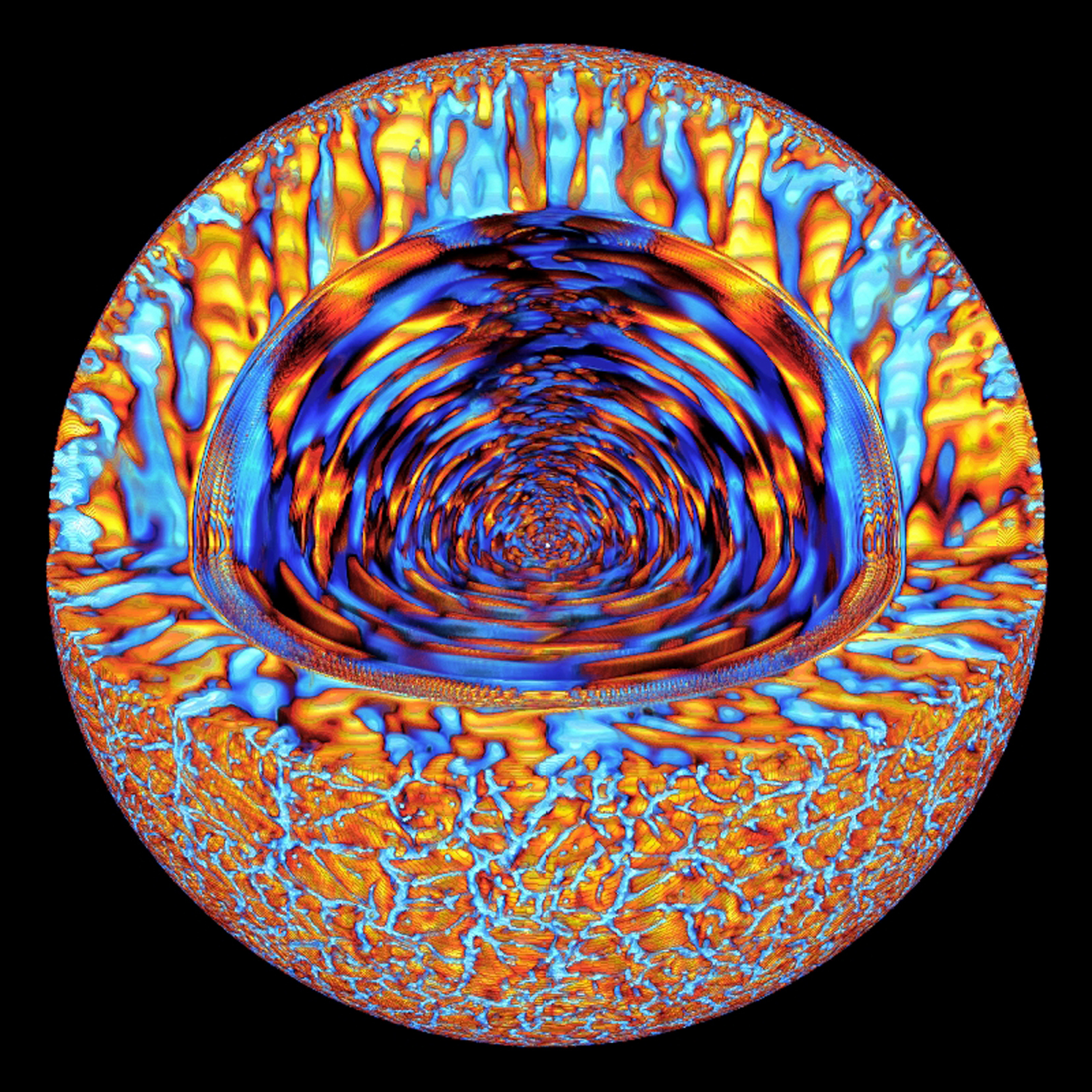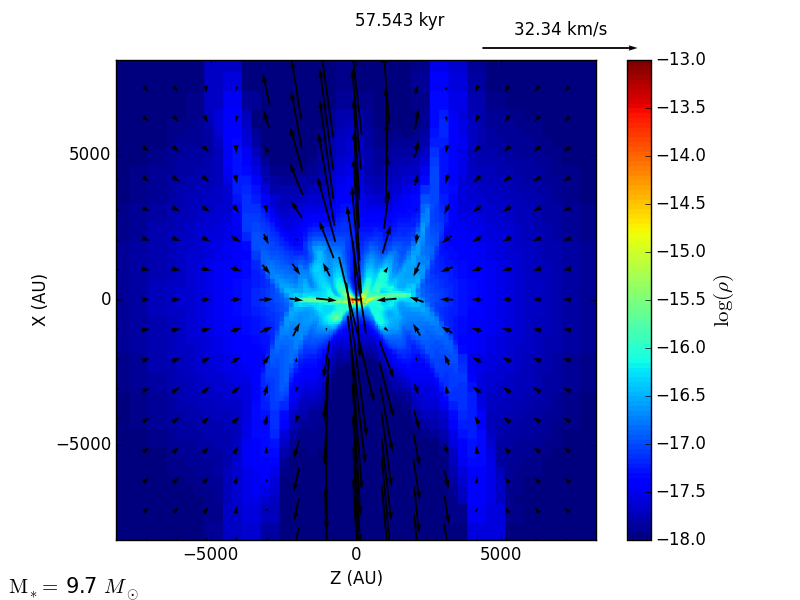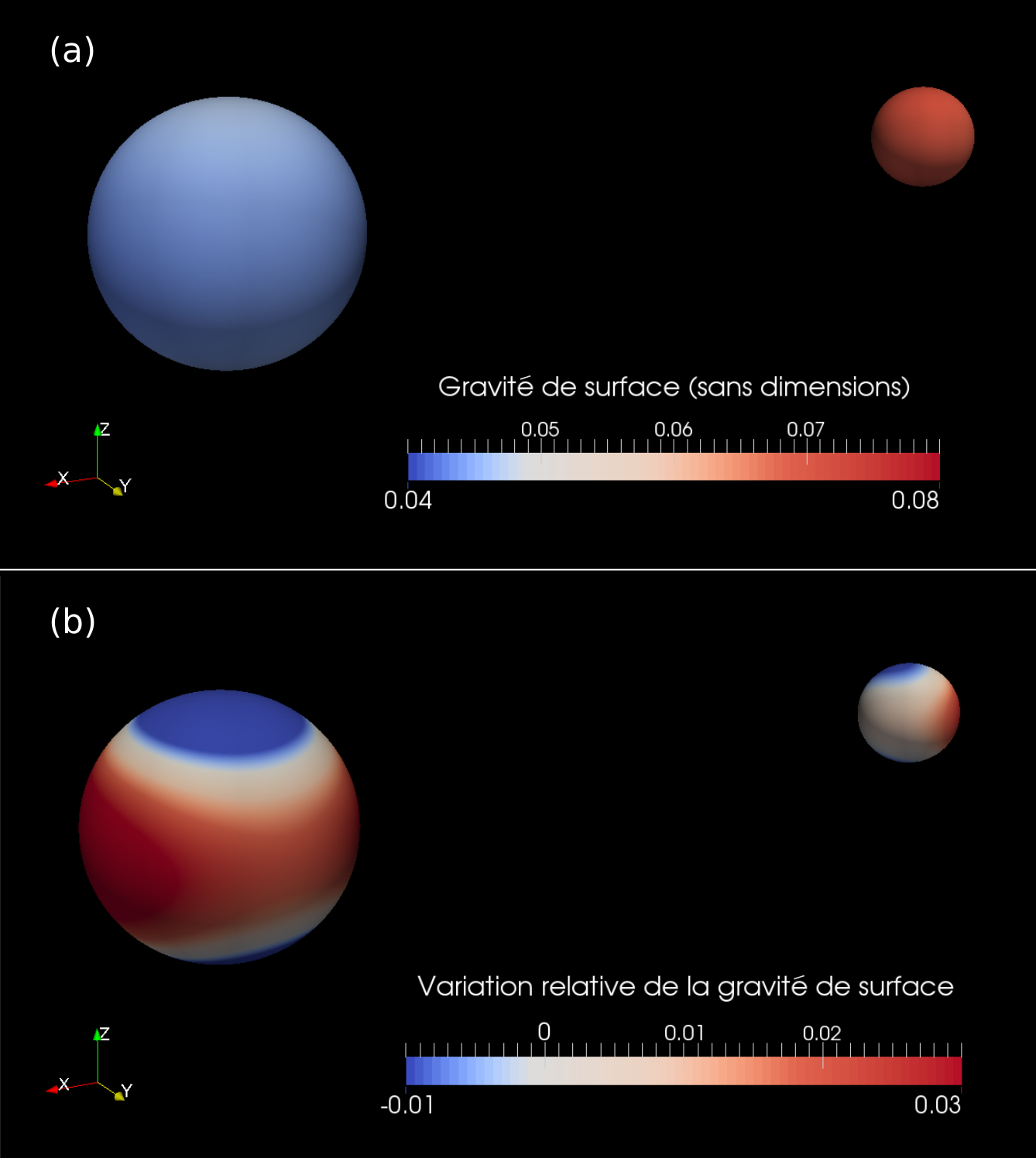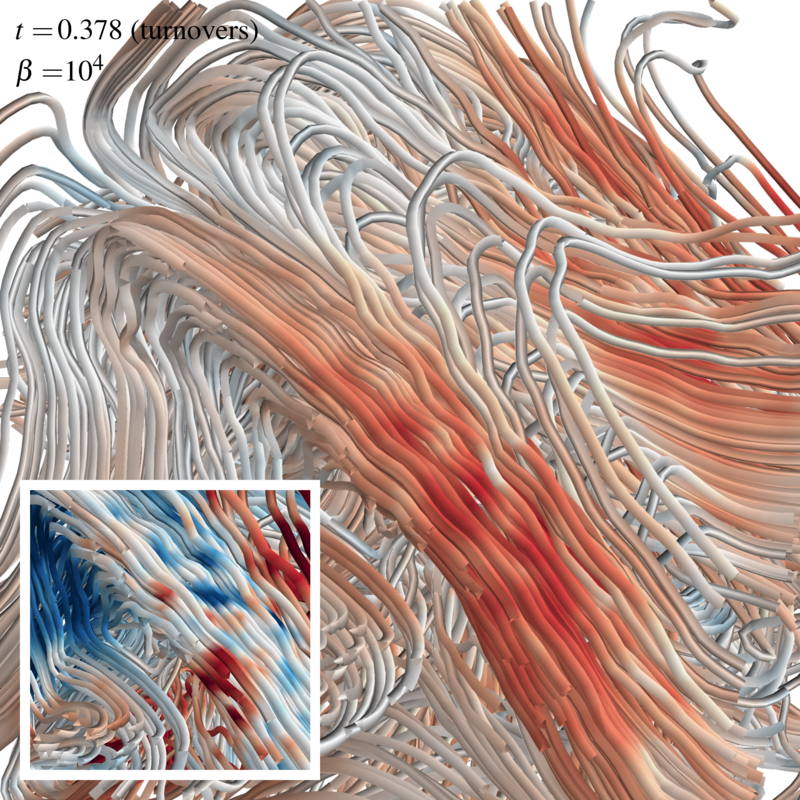Rationale:
The importance of numerical simulations in astrophysics has increased significantly over the past few years. Their aims are diverse, ranging from pure theoretical studies that includes more and more physics (dynamics, chemistry, radiative transfer) to detailed comparisons with the observations, their preparation or with the design and conception of space and ground based instruments.Such a massive change is, of course, not limited to astrophysics, but is widespread accross all fields of fundamental research. It results largely from the spectacular increase of the gigantic computing power of modern supercomputers that are now available to researchers both at the national (through GENCI) and european level (trough PRACE). It is accompanied by profound evolutions of the methods used by specialists of numerical simulations. More and more research projects are now performed in close collaborations with software engineers. With exascale computers coming soon, such a professionalism of high performance computing (HPC) is expected to become more and more unavoidable. Like the other communities in France, astrophysicists must prepare to that transition.
In this context, we organized a workshop during the french astronomy week that gathered experts in HPC in order to present the current state of the art of french numerical simulations in astrophysics. By bringing together an audience with varied scientific interest, the goal of the workshop was to generate discussions about current technical problem and numerical methods as well as to discuss their future evolutions.
SOC: G. Aulagnier, J. Blaizot, B. Dintrans, G. Dubus, S. Fromang, P. Hennebelle, P. Le Petit, A. Marchaudon
Thursday 16 June:
14h00: Francois Rincon (IRAP)
"Numerical simulations of turbulent dynamo in a collisionless plasma"
14h30: Allan Sacha Brun (CEA/Saclay, AIM)
"Turbulence et magnétisme des étoiles: de l’effet dynamo aux vents stellaires"
15h00: Remi Kazeroni (CEA/Saclay, AIM)
"Impact of stellar rotation on the explosion mechanism of core-collapse supernovae"
15h15: Valeska Valvidia (CEA/Saclay, AIM)
"Chemistry and dynamics in RAMSES: post-processing tool towards a real coupling"
15h30: Victor Reville (CEA/Saclay, AIM)
"Rotation rapide et champs magnétiques complexes dans les simulations MHD de vents stellaires."
15h45-16h15: Pause café
16h15: Philippe Grandclement (LUTH, Obs. Meudon)
"Relativité numérique et méthodes spectrales"
16h45: Jonathan Freundlich (Collège de France & LERMA, Observatoire de Paris)
"How baryonic feedback processes can affect dark matter haloes: a stochastic model"
17h00: William Bethune (IPAG, Grenoble)
"Hall-MHD and self-organization in protoplanetary disks"
17h15: Constance Emeriau-Viard (CEA/Saclay, AIM)
"Evolution of internal magnetic field in solar-like stars during the PMS"
17h30: Amandine Le Brun (CEA/Saclay, AIM)
"Evolution des profils de matière noire des amas massifs jusqu’à redshift 1"
17h45: Jose G. Fernandez-Trincado (UTINAM, Besancon)
"ResonantFamilies of Orbits in the Milky Way as Mapped by APOGEE Red Clump Stars"
Friday 17 June:
14h00: Pierre Ocvirk (Obs. Strasbourg)
"Introducing CoDa: Radiation-Hydrodynamics of Galaxy Formation in the Early Universe"
14h30: Nicolas Aunai (LPP)
"Simulations cinétiques pour les plasmas spatiaux/astro"
15h00: Olivier Iffrig (CEA/Saclay, AIM)
"Stellar feedback processes in kiloparsec-scale numerical simulations of the ISM: a real challenge"
15h15: Jenny Sorce (Leibniz Institute for Astrophysics, Allemagne)
"Simulating the Local Universe"
15h30: Aymeric Spiga (Laboratoire de Météorologie Dynamique / UPMC)
"Explorer la dynamique atmosphérique des planètes géantes par le calcul haute performance"
15h45-16h15: Pause café
16h15: Benoit Commerçon (CRAL/ENS Lyon)
"Etude des mécanismes d'accretion et d'éjection lors de la formation des étoiles massives"
16h45: Yueh-Ning Lee (CEA/Saclay, AIM)
"The gaseous protocluster: better characterizing the initial conditions ofstellar cluster formation?"
17h00: Vincent Reverdy (University of Illinois at Urbana-Champaign, USA)
"Perspectives in numerical astrophysics: towards an exciting future in the exascale era"
Invited presentations are shown in bold.
For more information, please send an email to Sébastien Fromang



